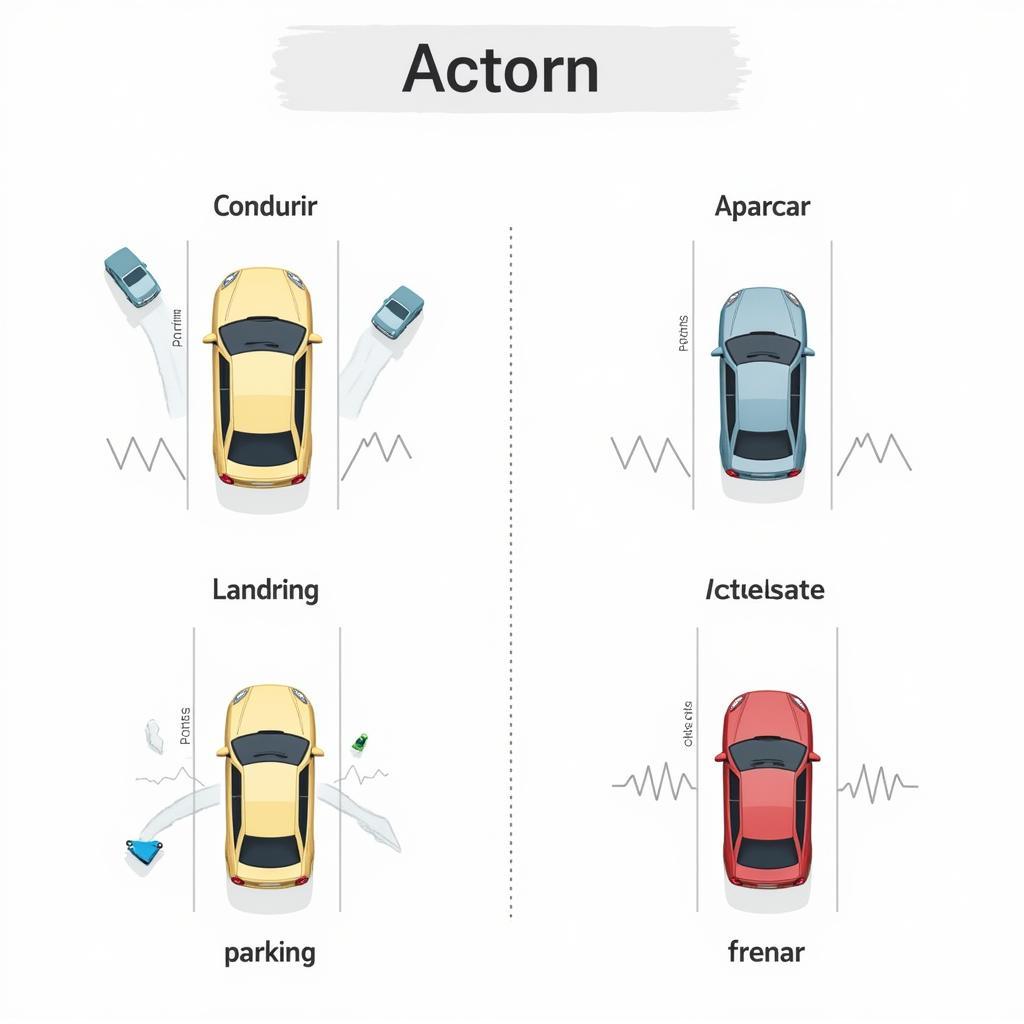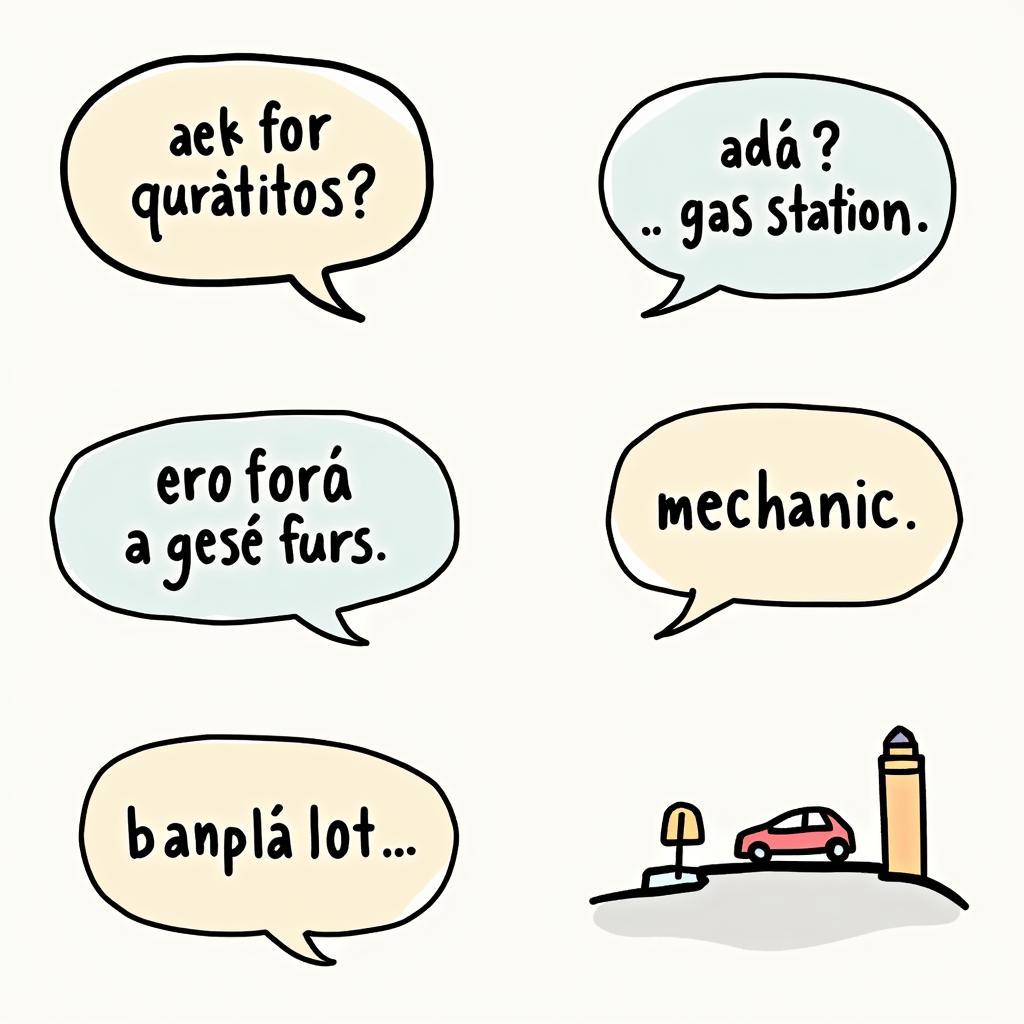Cars are a global phenomenon, and understanding how to talk about them in different languages can be incredibly useful. Whether you’re planning a road trip through a Spanish-speaking country, negotiating a car purchase, or simply expanding your vocabulary, knowing how to refer to “cars in Spanish” is essential. This guide will cover everything from basic vocabulary to more nuanced terms related to cars and the automotive industry in Spanish.
Basic Vocabulary for Cars in Spanish
The most common word for “car” in Spanish is “coche.” It’s a masculine noun, so you’ll use masculine articles and adjectives with it (e.g., el coche rojo – the red car). However, there are regional variations and other terms you might encounter. For instance, “auto” (short for automóvil) is also widely understood and used. In some Latin American countries, you might hear “carro” used more frequently. Knowing these variations can be helpful when traveling or conversing with Spanish speakers from different regions. You might even find some inspiration for good car names.
Here are some essential car-related terms:
- El coche/El auto/El carro: Car
- El volante: Steering wheel
- Los neumáticos/Las llantas: Tires
- El motor: Engine
- El parabrisas: Windshield
- El asiento: Seat
- La puerta: Door
- El maletero/La cajuela (Latin America): Trunk
- La gasolina: Gasoline
- El diésel: Diesel
Learning these basic terms will allow you to communicate effectively about cars in most situations. Thinking about car rentals in Costa Rica? Knowing these terms will help you tremendously.
Beyond the Basics: Talking About Cars in Spanish
Beyond basic vocabulary, it’s helpful to know how to discuss car features, issues, and actions. For instance, you might need to describe a problem with your car to a mechanic or inquire about specific features when renting a car.
- El seguro: Insurance
- La reparación: Repair
- El taller mecánico: Mechanic’s shop
- Conducir: To drive
- Aparcar/Estacionar: To park
- Acelerar: To accelerate
- Frenar: To brake
Imagine you need a San Jose car rental. Being able to discuss specific features or needs will be extremely helpful.
 Common Spanish Verbs Related to Cars
Common Spanish Verbs Related to Cars
Regional Differences in Car Vocabulary
As mentioned earlier, Spanish varies across regions. While “coche” is generally understood, “carro” is more common in some Latin American countries. Similarly, the word for “trunk” can be “maletero” in Spain and “cajuela” in many parts of Latin America. Being aware of these regional differences can prevent misunderstandings and enhance your communication. For instance, if you are considering San Diego rental cars, familiarizing yourself with the local Spanish dialects can be beneficial.
What are some common Spanish car brands?
Many car brands are recognized internationally, but their pronunciation might slightly differ in Spanish. Familiarize yourself with these variations to ensure clear communication.
How do I ask for directions related to cars in Spanish?
Knowing how to ask for directions to a gas station, mechanic, or parking lot is crucial, especially when traveling. Learn key phrases like “¿Dónde está la gasolinera más cercana?” (Where is the nearest gas station?) or “¿Hay un taller mecánico por aquí?” (Is there a mechanic shop around here?). If you’re looking for car rental El Paso, knowing how to ask directions is essential.
 Asking for Directions in Spanish Related to Cars
Asking for Directions in Spanish Related to Cars
Conclusion
Understanding “cars in Spanish” goes beyond just knowing the word for “car.” It involves learning a range of vocabulary related to car parts, actions, and issues, as well as being mindful of regional variations. By mastering these terms and phrases, you’ll be well-equipped to navigate car-related situations in Spanish-speaking environments. Whether you’re renting a car, talking to a mechanic, or simply conversing with locals, this knowledge will prove invaluable.
FAQ
- What is the most common word for “car” in Spanish? (Coche)
- What are some regional variations for “car” in Spanish? (Auto, carro)
- How do you say “tire” in Spanish? (Neumático/Llanta)
- What is the Spanish word for “steering wheel”? (Volante)
- How do you say “to drive” in Spanish? (Conducir)
- What’s the difference between “maletero” and “cajuela”? (Maletero is used in Spain, while cajuela is common in Latin America, both meaning “trunk”)
- How do I ask for a mechanic in Spanish? (¿Dónde hay un taller mecánico?)
For further information about car-related topics, you might find our articles on good car names or car rentals in Costa Rica helpful.
If you need further assistance, please contact us via WhatsApp: +1(641)206-8880, Email: [email protected] or visit us at 276 Reock St, City of Orange, NJ 07050, United States. We have a 24/7 customer service team.


